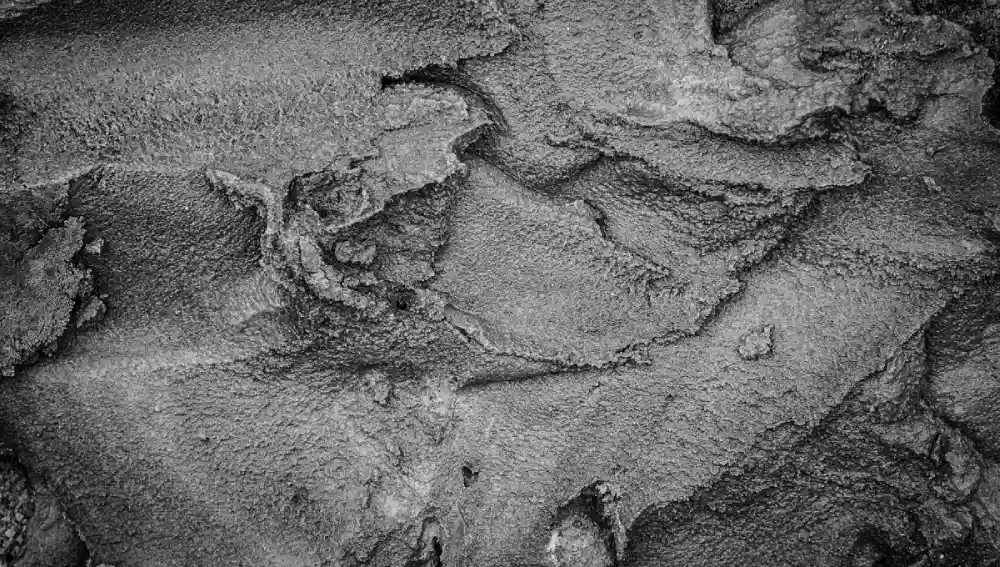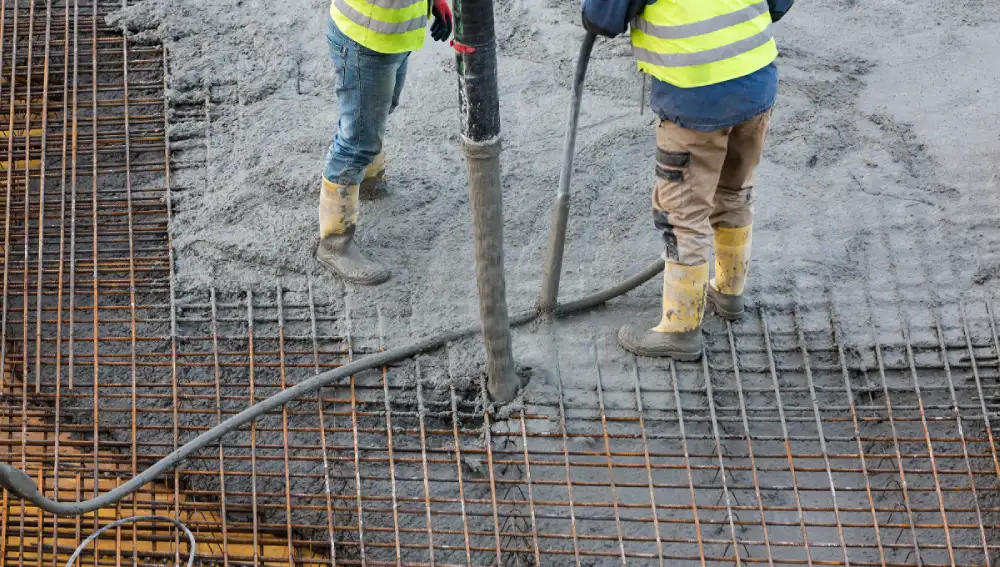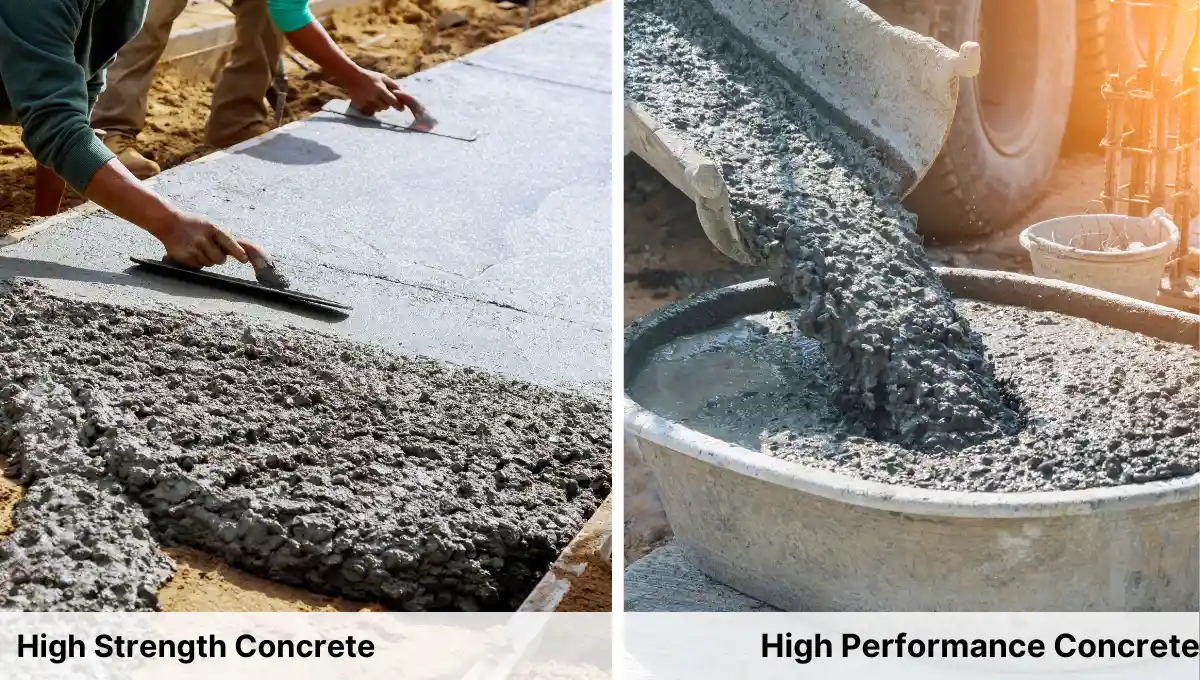Concrete is a fundamental material of modern construction, playing a crucial role in building skyscrapers to sturdy bridges. Typically, not all concrete mix are the same. Depending upon the construction requirements, the ingredients are adjusted with varying properties, leading to the production of specialized concrete types.
Generally, when discussing different types of concrete, people often confuse the terms, “high strength” and “high performance”. With this article, you will be cleared with their meanings, purpose, properties and applications. Let’s dive into the topic now:
The construction industry is most familiar with two types of concrete: high-strength concrete and high-performance concrete (HPC). Although their names may sound similar, they possess ideal functionalities.
High Strength Concrete
The name suggests that high strength concrete excels in compressive strength. It is known for its powerhouse performance, allowing concrete to withstand significant loads or pressure applied to it.
The strength of concrete is measured in megapascals (MPa) or per square inch (psi). The compressive strength of normal concrete is around 3000 – 4000 psi (i.e.) 20 to 28 MPa), while the high-strength concrete has a compressive strength of at least 7978 psi (55 MPa) or more than that.
To achieve this high strength concrete, some special types of cement are used such as sulphate-resistance cement, high-early-strength cement or the additives like supplementary cementitious materials (SCMs). They contain the properties of improving the durability and strength of the concrete.

Applications of High-Strength Concrete
High-strength concrete is primarily used in the construction of high-rise buildings, offshore structures, bridges, and related areas.
Being capable of handling heavy loads, makes it ideal for these demanding applications.
Benefits of High-Strength Concrete
High-strength concrete offers several advantages to the structures, including:
- Reduces overall weight
- Drastically lower the reinforcement needed
- Cost-effective work and
- Supports streamlined design
High-Performance Concrete (HPC)

High -performance concrete is a type of concrete that takes your structure performance to the next level. Beyond just high strength, it has improved properties such as , compressive strength, durability, tensile strength and resistance to chemical attacks and hectic temperature changes.
Special types of cement, well-graded aggregates, and admixtures can achieve maximum performance. Generally, admixtures are materials augmented with concrete mixture either before or during the Mixing of Concrete of ingredients for the concrete. They increase the workability of concrete and, when used to reduce the water-cement ratio, aid in increasing its strength To leverage the overall properties of concrete, high performance concrete also chases special types of aggregates, such as high-density or lightweight aggregates. It is best at resisting deformation and cracking, simultaneously maintaining its durability and strength even under extreme weather conditions.
Benefits of High -Performance Concrete
- Due to its ability to withstand heavy loads, it is ideal for constructing high-rise structures and skyscrapers.
- High- performance concrete is superior in providing a smooth finish and improved workability, leading to witness Satisfactory final product.
- It is specifically suitable for structures exposed to harsh weather conditions.
- Because of its high level of water resistance, HPC is best used in water- containment structures like bridges, swimming pools, etc.
Applications of High Performance Concrete
High -performance concrete is best fit for the construction of highways, bridges and other related infrastructures, particularly exposed to harsh weather and heavy traffic.
Contains superior resistance to saltwater corrosion, making it the prime choice for docks, offshore platforms, and piers.
Because of its enhanced strength and ductility, it actively withstands seismic forces and earthquakes.
High Strength Vs. High-Performance Concrete
Both concretes are beneficial to the structures in different ways, but still, they have varied properties. Here are some major key differences discussed:
| Key Parameters | High Strength Concrete | High Performance Concrete (HPC) |
| Key properties | High compressive strength (55+ MPa), low creep of concrete, low shrinkage, modulus of elastic | Based on the mix designs, it provides enhanced durability, workability, tensile strength, chemical and weather resistance, compressive strength and more. |
| Applications | Bridges, precast concrete elements and high-rise buildings | Suitable for a wide range of constructions, including bridges, architectural concrete, high-rise buildings, and marine structures. |
| Workability | Contains moderate workability | High workability (easier to work and finish) |
| Construction speed | Standard or regular construction time. | Faster process (due to early strength gain capacity) |
| Cost | Consumer lower cost | Due to its complex mix design, it costs more. |
In a Summary,
Both high-strength and high-performance concrete resemble the advancement in technology, offering top-notch solutions to construction projects. To handle any complex structures, the concrete mix is carefully curated with unique characteristics and applications. You can make informed decisions based on some significant factors such as durability, performance and durability.
FAQs
High -strength concrete is a prime choice for applications requiring high load-bearing capacity including bridges, precast concrete elements with heavy loads and high-rise buildings. It is capable of achieving thinner sections, which is the next-level advantage in these scenarios.
High-strength concrete offers exceptional compressive strength (55+ MPa) to the structures. High performance concrete, on the other hand, focuses on achieving superior properties like high durability, strength and workability along with the high-strength.
High- strength concrete contains moderate durability compared to HPC. Significantly, high -performance concrete is highly resistant to wear, chemical attack and cracking. It results in a longer lifespan with reduced maintenance costs.
Not exactly. Based on the type of construction projects you are handling, the choice of preference may vary. Using high- performance concrete costs higher but suits well for more complex mix designs. If a project typically requires higher compressive strength and budget is a major concern, high-strength concrete is sufficient.
Beyond performance and strength, there are some other significant factors to consider:
* Site condition
* Project requirements
* Material availability
* Budget

